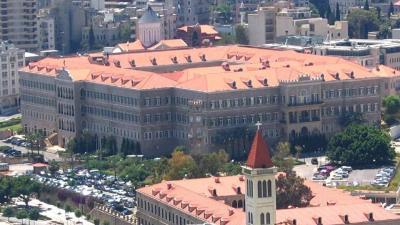With determination, Speaker Nabih Berri fought for the return of Najib Mikati as the designated Prime Minister to form the government, aligned with "Hezbollah" on the same option. A few days ago, Berri warned the main political forces, particularly "Hezbollah" and the Progressive Socialist Party, that the frustration brewing among Sunnis in Lebanon will bring them closer to the position of Christians in the past. A former Prime Minister has been sidelined, and another confined to his home, leaving no significant alternative but Mikati, who has good relations abroad and is open to all parties domestically. From "Hezbollah"'s perspective, simply nominating Nawaf Salam means that Mikati will be their obvious candidate for the premiership. It is natural for a duo that participated heavily in the parliamentary elections and secured the victory of the Speaker and his deputy to engage in the battle for the premiership. There aren’t many candidates, and the options are limited to Mikati. Deputy Abdul Rahman Bizri, who hinted he would be Saudi Arabia's candidate, will not be "Hezbollah's" choice after they parted ways during the parliamentary elections, with Bizri moving toward the anti-duo axis. Bizri was one of the options for the head of the Free Patriotic Movement, Gebran Bassil, along with Amin Salama and others, but his choice will likely lean toward no nomination. Once again, the Free Patriotic Movement does not align with its ally on naming the Prime Minister. Bassil refuses to re-nominate Mikati unless it aligns with his conditions. He considers that the next government will be one with the powers of the President of the Republic and that its work will continue for a long time due to the lack of upcoming presidential elections. Meanwhile, "Hezbollah" believes that this government’s limit is the end of the President’s term, asserting that the presidential elections will take place on schedule. The assignment of Mikati, if it happens, does not automatically mean the formation of a government. The irony here is that everyone is discussing the assignment without expecting the formation, anticipating a fierce battle between Aoun and Bassil on one side and the appointed Mikati on the other. With the agreed-upon assignment of Mikati, if it occurs, the results of the parliamentary elections seem irrelevant since the majority still differs from the aspirations of the change forces and sovereign powers, among other names. The change forces have collapsed in their disagreements and failed to unify their ranks and meet with other groups, while Deputy Michel Moawad announces a parliamentary bloc bringing him together with Deputies Fouad Makhzoumi and General Ashraf Rifi, refusing to name Mikati since he considers him part of the system but does not mention any other personality.
Not far from him, the Lebanese Forces announced their neutrality by not adopting any nomination for the premiership. Once again, the Forces have not translated their parliamentary victory into any achievement thus far. With Lebanese Forces President Samir Geagea declaring his commitment to the no-nomination option for the premiership, it becomes clear that the premiership has been decided in Mikati's favor, as he is effectively liberated from the constraints set by Gebran Bassil for forming the government. It is rare for the Free Patriotic Movement to align with the Lebanese Forces on the no-nomination option. The Forces find themselves in a dilemma. The nomination of Salam may not reach its desired conclusion again, whereas Mikati does not represent their aspirations as they present them to the public. Some hint at a promise previously made by the Forces to Mikati during the parliamentary elections not to support a Christian candidate to ensure the victory of the Forces' candidate. With the blank paper, the Forces decided to facilitate Mikati's assignment to form the government, thereby stripping Bassil of a significant negotiating card, especially after Nabil Badr confirmed that the votes of 13 Sunni deputies would go to Mikati. Meanwhile, the Progressive Socialist Party publicly showed its leader’s stance by rejecting Mikati due to the long-standing lack of rapport between the two men. In return, Jumblatt faces the opposition from his son, Taymour, concerning the continuation of the same political approach towards the political system. Since the parliamentary elections, Taymour has objected to the presence of old faces in the Socialist Party and failed in his endeavor with his father to lead a comprehensive change campaign. The consolation prize was supporting the change candidates Mark Daou and Firas Hamdan, who did not stray from the political course. The decision to nominate Ambassador Nawaf Salam was not a Saudi directive or otherwise, but rather an expression of the rejection of Mikati. This time, Jumblatt did not rely on his ally Berri's opinion, and Taymour's voice resonated more, considering it time for new choices. Some deputies even believed that the party, by electing Berri, has fulfilled its dues to higher authority and settled its debt entirely. The receptions and visits of the Saudi ambassador suggest that his country is closely managing the process of the premiership, yet, as in the parliamentary elections, no direct results of his movements appear on the ground. Saudi Arabia does not support Mikati's return, evidenced by the receptions of its ambassador, but it has not adopted an alternative nomination for him either. How could it enter a battle for a government that will last only months while the real change, in its view, will come through the election of the President of the Republic, and here lies the crux of the matter.




